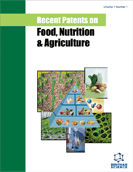Abstract
Among the different strategies applied in recent years for the development
of green extraction techniques in food analysis, the design and use of deep eutectic
solvents (DESs) have aroused the utmost attention due to the advantages provided by
these materials in terms of sustainability and versatility. Different types of DESs have
been applied in this field including hydrophilic and hydrophobic mixtures, natural
DESs, or polymeric-DESs. In this sense, the great availability of components and the
wide range of possible combinations constitute potential tools to increase the selectivity
and enhance the extraction capacity of the procedures, which is an important concern
when complex food samples are tackled. This broad spectrum of possibilities has
allowed the extraction of diverse compounds including not only contaminants such as
pesticides, plastic migrants, heavy metals, or pharmaceuticals, among others, but also
the extraction of biomolecules from food and food by-products. However, despite the
advantages of these materials, there are important drawbacks like their high viscosity
and low volatility that limit their application. In this context, an important effort has
been carried out by the study of different combinations and the development of
numerous approaches. In this chapter, the most relevant applications of DESs in the last
five years in food analysis have been compiled and discussed in order to provide a
global view of the advantages and limitations of the application of these green
extraction solvents in the field. Additionally, the current trends and future perspectives
in the use of DESs in food analysis are also pointed out.



















